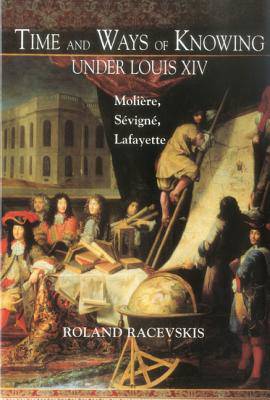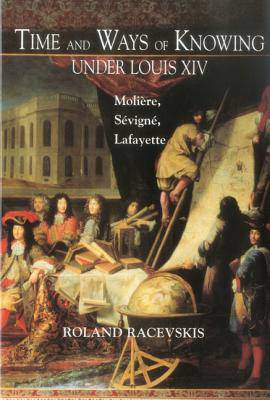
- Retrait gratuit dans votre magasin Club
- 7.000.000 titres dans notre catalogue
- Payer en toute sécurité
- Toujours un magasin près de chez vous
- Retrait gratuit dans votre magasin Club
- 7.000.0000 titres dans notre catalogue
- Payer en toute sécurité
- Toujours un magasin près de chez vous
92,45 €
+ 184 points
Description
What can we know about the understanding of time in a particular cultural or historical setting, and what can this knowledge tell us about how we think about time today? Time and Ways of Knowing: Molière, Sévigné, Lafayette raises these questions by examining the scientific measurement and perception of time in seventeenth-century Europe and particularly in France. This widely researched book argues that the technological and social changes relating to time have a paradoxical impact in seventeenth-century France; they lead to more control of the individual, thus intruding upon the realm of the private, and at the same time encourage the development of a newfound sense of privacy and subjectivity, partly in reaction to the increasing control of the individual by the state. This Foucaludian hypothesis is compellingly developed through a number of critical readings in historical contexts: the social framework of court life under Louis XIV is made to shed light on Molière's theatrical time; an analysis of early modern French postal reform reveals that concertedly diurnal nature of Mme de Sévigné's letters; and the consideration of early French periodicals evoks readers' reactions to Mme de Lafayette's La Princesse de Clèves, a novel whose discourses proposed a new kind of narrative time. A conclusion connects early modern historical questions of human temporality to present-day environmental conerns. Time and Ways of Knowing is an original, interdisciplinary study that will appeal to scholars of seventeenth-century French literature and culture, and of the philosophy of science, as wlel as to those interested in narrative, temporality, and questions of disciplinary.
Spécifications
Parties prenantes
- Auteur(s) :
- Editeur:
Contenu
- Nombre de pages :
- 220
- Langue:
- Anglais
- Collection :
Caractéristiques
- EAN:
- 9781611481655
- Date de parution :
- 01-03-03
- Format:
- Livre relié
- Format numérique:
- Genaaid
- Dimensions :
- 168 mm x 244 mm
- Poids :
- 514 g

Les avis
Nous publions uniquement les avis qui respectent les conditions requises. Consultez nos conditions pour les avis.






